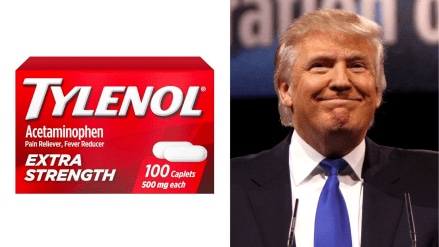Tylenol, a staple in American households for nearly seven decades, is again at the centre of a storm. The pain reliever, made by Kenvue, has been drawn into a controversy after news that the Trump administration plans to link its use during pregnancy to autism, a claim that is not yet supported by science. Johnson & Johnson finalised the separation of some of their products, which were then put into an independent company known as Kenvue. Since 2023, J&J has exited its ownership position, leaving Kenvue as an entirely publicly traded company.
The product creation has put renewed public attention on the drug in the spotlight once again, recalling to mind the 1982 Chicago cyanide poisonings that claimed seven lives and a case study in crisis control for companies. Now, though, Tylenol is part of Kenvue, the consumer health spin-off formed in 2023, that also includes such iconic brands as Band-Aid, Listerine, and Neutrogena.
Tylenol, also known as paracetamol, is a widely consumed over-the-counter medication. It was introduced in 1955 by McNeil Laboratories and acquired by Johnson & Johnson in 1959. It is now manufactured and marketed by Kenvue, the consumer health spinoff from J&J established in 2023, which leverages strong pediatric formulations like Children’s Tylenol to maintain leadership in North America. The global acetaminophen market, valued at approximately USD 10.4 billion in 2024 and projected to reach USD 16.6 billion by 2034 at a 4.5% CAGR, according to Global Market Insights. The oral format accounts for over 92% of usage.
Stock decline and firm resistance
Investor jitters have been quick. Since The Wall Street Journal initially broke the news about the administration’s action last week, Kenvue’s stock has declined 16%, including a 6% drop on Monday. Morningstar analysts estimate that Tylenol accounts for close to $1 billion in yearly sales at Kenvue, ranking it among the firm’s most significant brands.
“Any potential risk to the product would have a discernible effect on the firm’s earnings power,” added Keonhee Kim, an equity analyst with the company, the NYT reported. Kenvue vigorously denied the proposed report, however. “Sound, independent science clearly indicates that taking acetaminophen does not lead to autism,” said spokesperson Melissa Witt in a statement, adding that false claims jeopardised the health of expecting mothers.
Attempts to avoid a crisis
Over the past few weeks, Kenvue has directly approached Washington policymakers in an attempt to prevent reputational harm. Kenvue’s interim chief executive, Kirk Perry, met with the U.S. Health Secretary Robert F. Kennedy Jr. will emphasise the safety of acetaminophen and its use in regulating fever during pregnancy. The firm has also revised its website with assurances that there is no need for consumers to be “concerned about acetaminophen and autism.
The controversy revolves around the ongoing litigation. Families sued, claiming that Tylenol use during pregnancy contributed to autism or attention-deficit hyperactivity disorder. Although a federal judge threw the case out for lack of scientific basis, appeals are pending. In the meantime, Kenvue has been struggling with strategic drift. In July, the company removed CEO Thibaut Mongon and installed Perry, a consumer goods veteran, on an interim basis. With sales flat, activist investors are closing in, demanding divestitures or even a full sale of the company.
Acetaminophen, the active ingredient in Tylenol, was first marketed in 1955 by McNeil Laboratories, which packaged its Elixir Tylenol syrup in a fire-engine-shaped bottle “for little hotheads.” Johnson & Johnson acquired McNeil in 1959 and brought Tylenol to the over-the-counter market the following year.
Although there were occasional recalls and long-standing cautions regarding liver toxicity at high levels, Tylenol continued to be broadly accepted. Its greatest challenge came in 1982, when some bottles of Extra-Strength Tylenol were tampered with in Chicago, and seven people died. Johnson & Johnson’s firm-wide nationwide recall and subsequent establishment of tamper-resistant packaging reaffirmed consumer confidence and has since been cited as a gold standard in corporate crisis management.
Now, virtually one-quarter of U.S. adults take acetaminophen-containing products each week, industry data show, highlighting the enduring popularity of Tylenol in the face of generic competition. But the stakes are high for Kenvue. As the heir to an iconic brand with a history of both successes and travails, the two-year-old firm now has the task of safeguarding Tylenol’s brand in a highly politicised environment.
